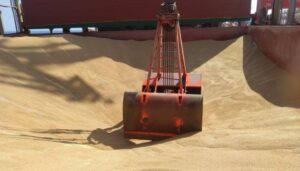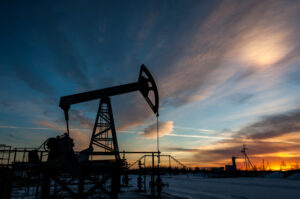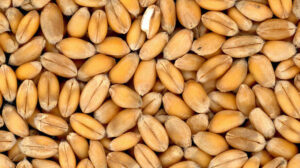
The State Property Fund (SPF) will be able to resume big privatization, to lease state property for up to five years and will receive sub-sanctioned property upon the decision of the SAI and independently decide on its further fate.
According to the FGI in a press release, the relevant provisions are stipulated by law number 8250, which the Rada supported by 231 votes with the required minimum of 226 votes on May 30.
The fund specified that it will independently make management decisions on the sub-sanctioned property: privatization, sale, lease or management, and all the funds received will be directed to the Fund for liquidation of consequences of the armed aggression of the Russian Federation.
In addition, the law bans unsanctioned individuals and citizens of aggressor countries from holding positions as heads of state-owned companies and members of supervisory boards and cancels the procedure for approving local authorities for directors of state-owned companies managed by the SPF, the release said.
Regarding the lease, the Fund recalled that before the full-scale invasion, it could lease state property for up to 49 years, although the vast majority of contracts were for five years: in 2021, the share of five-year contracts was 88.8%.
At the same time, at the beginning of the war there were fears that due to low competition caused by the general uncertainty, the price of the lease may be underestimated, and from April 1, 2022 the Rada limited the validity of new contracts to the duration of martial law + 12 months after its cancellation, explained the IGF. He specified that during this time has concluded 1,153 such contracts.
“But in recent months, Ukrainian business has gradually adapted to the challenges of martial law … Term limits do not encourage entrepreneurs to participate in lease auctions, so now 38% of them do not pass due to lack of demand,” explained the Fund.
After the law enters into force, the agency expects to increase the income from renting state property by 20-25%, or 100 million hryvnias per year, as well as to improve the condition of the leased property.
According to a press release, the law also aims to improve the management structure of the IGF: the head of the Fund will have the right to appoint and dismiss deputies, 12 regional offices – separate legal entities will become structural units, and the organizational structure will be built on a functional principle. “As a consequence, a clearer and more understandable responsibility for the work of the State Property Fund and the installation of the KRI for subdivisions and market salaries for employees,” the statement said.

Foreign Minister Edgar Rinkevich nominated by New Unity has been elected president of Latvia in the third round of voting in the Saeima.
Fifty-two deputies voted for Rinkevich, the minimum required being 51 votes.
Uldis Pilens, the United List candidate, received 25 votes in the third round.

Grain and oilseed exports from Ukraine in 2023 will drop by a third to 46 million tons per year, Agrarian Policy Minister Mykola Solsky said at a meeting of the Agriculture and Fisheries Council in Brussels on Tuesday.
“Compared to last year, this year’s exports of grain and oilseed crops from Ukraine are expected to decrease by a third to 46 million tons per year. Consequently, Ukraine will be able to export less grain than last year by 40%,” the press service of the Ministry of Agrarian Policy quoted the minister’s speech to European colleagues.
European Commissioner for Agriculture Janusz Wojciechowski also said at a press conference after the meeting of the agrarian ministers that the EU expects Ukraine to reduce its exports in 2023 because “the country has limited cultivated areas and expects a 40% lower harvest”.
He expressed confidence that this factor will improve the organization of “routes of solidarity” and send “all exports through them.
Wojciechowski positively assessed the prolongation of exports within the framework of the Black Sea Grain Initiative, which “will facilitate the export of grain from Ukraine for two months”.
The European Commissioner also recalled the need to take into account the situation with the possible blocking of exports of Ukrainian agricultural products “as it already happened before” through the Black Sea grain corridor and urged to consider the total volume of Ukrainian exports when planning the work of “solidarity corridors”.

Oil prices continue to decline Wednesday after hitting lows over the past month the day before.
July Brent futures on London’s ICE Futures Exchange stood at $73.35 a barrel by 8:05 a.m. Wednesday, down $0.19 (0.26%) from the previous session’s close. Those contracts fell $3.53 (4.6%) to $73.54 a barrel on Tuesday.
July WTI futures on NYMEX fell by $0.24 (0.35%) to $69.22 per barrel by that time. The contracts fell by $3.21 (4.4%) to $69.46 a barrel at the end of the last session.
According to Dow Jones Market Data, both grades closed the previous day at their lowest level since May 4.
Traders’ attention is still directed to the situation with the U.S. debt ceiling. On Wednesday, it’s expected to vote in the House of Representatives on the draft agreement reached by President Joe Biden and the Speaker of the Lower House of Congress, Republican Kevin McCarthy, after which the document will go to the Senate.
In addition, the market is assessing macroeconomic data from China. The published May official value of purchasing managers index (PMI) in the processing industry didn’t justify the 49.4 points forecast of analysts, having decreased to the minimum for five months of 48.8 points from 49.2 points in April.
The weak statistics strengthened fears of a slowdown in economic growth in China, the world’s top oil importer, Trading Economics said.

The European Union (EU) and Ukraine need to find a solution that would allow Ukrainian farmers to work, exporting grain to the EU in the volumes they need, Croatian Minister of Agriculture Marija Vučković said at an online meeting with Ukrainian Minister of Agrarian Policy Mykola Solsky on Tuesday.
Vučković is confident that the restrictions on the export of Ukrainian agricultural products to Europe, which were introduced by the European Commission until June 5, should not be extended after this date, the press service of Ukraine’s Ministry of Agrarian Policy and Food said.
Solsky, in turn, thanked his colleague for understanding. He also said that Croatia became one of the signatories of the letter of the European Commission sent by the relevant ministers of 14 states of the European Union. In this appeal, they expressed concern about the temporary ban on importing Ukrainian agricultural products to five states of the European Union.

The Artificial Intelligence (AI) Security Center in the United States and other groups of experts have together warned that the development of AI technology threatens the extinction of humanity and that measures must be taken to prevent such a scenario.
“Reducing the risk of extinction that could occur because of AI should be a global priority along with other threats such as pandemics and nuclear war,” the Center for AI Safety said in a statement published on its website.
The document was signed by AI experts, as well as experts in information technology, economics, mathematics, and philosophy. Among them are the CEO of Open AI and programmer Sam Altman, and one of the developers of AI, British scientist Jeffrey Hinton.
The initiators of the statement circulated in order to raise awareness of the risks of AI, to start discussions on the topic, and to talk about the increasing number of experts and public figures who take the threats from advanced AI technology seriously.
The Associated Press recalls that earlier this year, Twitter, SpaceX and Tesla owner Elon Musk and more than 1,000 scientific researchers and technicians signed a letter calling for a six-month suspension of AI development programs because, in their words, “it poses serious risks to society and humanity.”